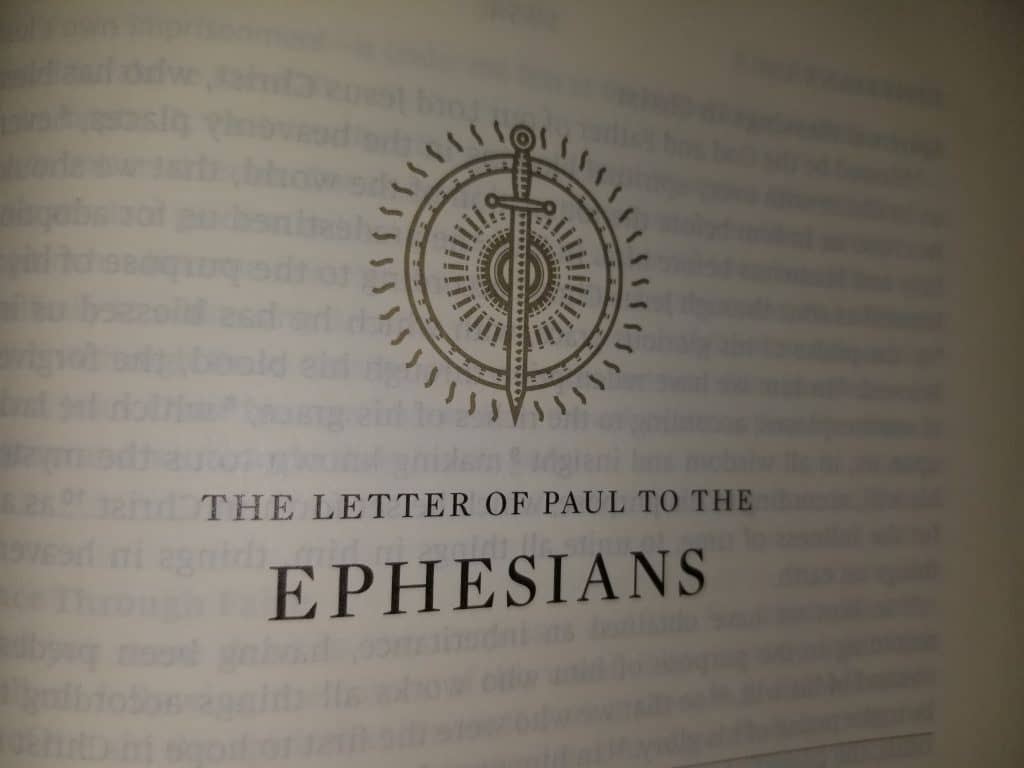⏱️ Estimated Reading Time: 7 min read
Ephesians 4:17-19, ESV, “Now this I say and testify in the Lord, that you must no longer walk as the Gentiles do, in the futility of their minds. They are darkened in their understanding, alienated from the life of God because of the ignorance that is in them, due to their hardness of heart. They have become callous and have given themselves up to sensuality, greedy to practice every kind of impurity.”
Today we live in a culture where the fear of missing out is prevalent. A new word has been added to the cultural jargon to describe this phenomenon, FOMO. According to dictionary.com FOMO is defined as “a feeling of anxiety or insecurity over the possibility of missing out on something, as an event or an opportunity.”[i]
Social media amplifies this fear of missing out. We are constantly tempted to check our phones for the latest updates from our “friends” and compare what they have been doing to what we have been doing. Many times it appears that others are more satisfied with their lives than we are with ours. On the surface, it may seem that others are having more fun and are more satisfied with their lives, which may tempt us to think that something is wrong with us. However, we must guard against FOMO by reminding ourselves that only Jesus brings us the greatest satisfaction in this life and in the life to come.
Even though the cultural lingo may have changed over the past two thousand years, the human heart has not. In our focus text (Eph 4:17-19) the Apostle Paul today addresses this same issue with the church in Ephesus when he says, “you must no longer walk as the Gentiles do” (Ephesians 4:17).
In this section of the letter, Paul has transitioned from a theology of the gospel (soteriology in Eph 2 and Christology in Ephesians chapter 3) to an exhortation on the Christian life. He begins chapter four by discussing the unity of the body of Christ. In verse 17 to the end of the chapter, he transitions to a discussion on the importance of holiness. As believers living in a predominantly non-believing context, the Ephesians were tempted to fit in with their neighbors, friends, co-workers, and families.
For this reason, Paul reminds them that, though the way others live may seem appealing on the surface it is not all that it appears to be. The writer of Proverbs puts it this way, “There is a way that seems right to a man, but its end is the way to death” (Prov. 14:12). As Paul pulls back the curtain on the charade of the fear of missing out, he reminds the Ephesian church (and us) that right living, holiness, corresponds to right thinking and right believing.
Why Right Thinking and Right Living Matter
First, right living corresponds to right thinking (Eph 4:17-18). Paul says that the Gentiles walk “in the futility of their minds.” The word futility here could also be translated as “vain, empty, idle, or frivolous.”
No matter how noble or good, apart from Christ, all pursuits in this world are meaningless. We see this also in Ecclesiastes where the writer spends most of the book describing his worldly pursuits which, in the end, are found to be pointless and vain. Having futile thinking leads to a darkening of understanding, which ultimately alienates us from the life that is found only in God (v. 18).
In his letter to the church in Rome Paul puts it this way, “Do not be conformed to this world, but be transformed by the renewal of your mind” (Romans 12:2, ESV). For believers to not be conformed to this world (living in the futility of mind), we must be transformed from the inside out. As we have seen earlier in our study of Ephesians, this transformation happens as a gift from God it not something we can do for ourselves (Eph 2:8-9). I like the way Richard Coekin puts it in his commentary on Ephesians, “This transformation happens as God speaks through his word to cleanse and reorder our thinking, which then reshapes our attitudes, in order to purify and warm the affections of our hearts towards God, in order to redirect our wills and then our behavior in following Jesus” (Ephesians for You, 131).
Second, right living corresponds to right believing (Eph 4:18-19). When a person’s mind is not set on the things of God, it leads to a hardness of heart (unbelief). In turn, when a person is not trusting in the gospel of Christ and has become callous to the things of God, it leads to a life alienated from God (v.18). When a person’s heart is calloused to God in unbelief, they are more vulnerable to sin in three ways: sensuality, greed, and impurity. On the surface, these sins may present themselves as good things.
One might tell himself that he is simply “admiring beauty” when he looks at a woman that is not his wife. However, if his heart is calloused to God, it can lead to adultery. A mother might tell herself that she wants the best for her children. However, if her heart is calloused to God, it can lead her to forfeit time with her children in order to accumulate more money and nice things for them. A person might tell themselves that it is okay to be successful at work. However, if their heart is calloused to God, it can lead them to compromise in ways that hurt others in order to reach the top. What may seem harmless turns out to be a trap that enslaves the soul.
The point that Paul is trying to make here is summed in one short phrase, “you must no longer walk” (v.17). He is implying that the believers to which he is writing once lived in this way. They too lived in the futility of their minds and had calloused hearts, which alienated them from the life of God. What changed? By the grace of God, their minds and hearts had been radically changed by the truth that is found in Jesus by the power of the gospel (v. 21). They had not gotten where they were by following a list of rules. They had been transformed by the grace of God. However, they were not immune to the temptations they had before they surrendered to Christ. They must guard against drifting back into the life they once lived. Paul is encouraging them to keep their minds and hearts set on what brought about their transformation, namely Jesus.
Brother and sisters in Christ, we too were like the believers in Ephesus. We were alienated from God in the futility of our minds and the hardness of our hearts. But thanks be to God that he did not leave us in that condition. He has brought us into His family by the grace found only through the death and resurrection of Jesus. By placing our faith in Him, we are transformed from the inside out. However, we too are prone to wander back to the sin we have left and attempt to comfort and satisfaction in it instead of in Jesus.
Believer, I urge you the next time you are tempted to sin, look to Jesus who is the author and finisher of our faith (Heb 12:1-2). We must continuously remind ourselves of the gospel because we so often forget it. As the hymn Come Thou Fount of Every Blessing reminds us:
Oh, to grace how great a debtor
Daily I’m constrained to be
Let that goodness like a fetter
Bind my wandering heart to Thee
Prone to wander, Lord, I feel it
Prone to leave the God I love
Here’s my heart, oh, take and seal it
Seal it for Thy courts above
(Robert Robinson, 1757)
[i] https://www.dictionary.com/browse/fomo



